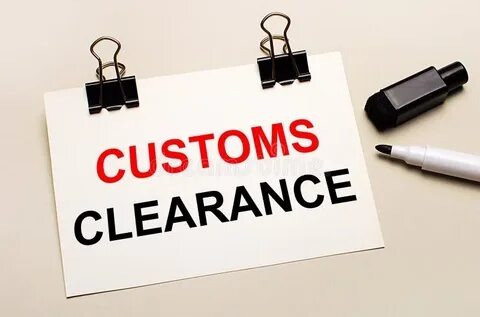One Document That Could Bring Your Shipment To A Halt

Delays at the border aren't always about missing paperwork—sometimes, it's about one specific document that many overlook.
The Overlooked Obstacle in Saudi Imports
Bringing goods into Saudi Arabia isn’t as simple as packing a container and sending it off. Importers often face a tangled process of documents, inspections, and regulatory hurdles. And while many are diligent in getting invoices and bills of lading in order, they often neglect a lesser-known but critical file: the compliance verification document that ensures their products meet Saudi standards.
This oversight has caused significant delays and losses for businesses, particularly small to medium importers who don’t have dedicated compliance teams. Let’s dig into the reality of this problem and explore how one missing file could hold up an entire shipment at customs.
The Problem: A File Most Importers Don’t Know They Need
Picture this: You’ve handled all the major documents. Your shipment is clean, legitimate, and packed to spec. But when it reaches the Saudi port, you're told it can’t move forward. Why? Because it lacks a compliance certificate issued by an authorized body that ensures product safety and conformity.
That document is often the Saber certificate.
This certificate is more than just a formality. It proves your products meet the technical regulations enforced by the Saudi Standards, Metrology and Quality Organization (SASO). Without it, your goods may not even make it past the first checkpoint. The catch? Many new importers don’t realize this until it’s too late.
The Agitation: Delays, Fines, and a Hit to Reputation
The cost of not having a Saber certificate isn’t just inconvenience—it’s real financial and reputational damage. Here’s what you could face:
Lengthy customs holds that result in port storage fees.
Fines imposed by local authorities for non-compliance.
Return or destruction of goods if deemed unfit or dangerous.
Damaged relationships with local clients expecting timely delivery.
And in a competitive market like Saudi Arabia, where delivery speed and reliability matter, these consequences can break a deal.
Case Study: A Dammam Importer’s Costly Lesson
Let’s take a look at a real-world example. In the Al Khobar district of Dammam, a mid-sized importer of electrical components was preparing for a major contract with a construction company building a smart housing development.
The importer had handled numerous shipments before and assumed this one would be routine. They secured all the usual documents, hired a trusted freight forwarder, and scheduled delivery in time for the contractor’s project timeline.
But upon arrival at King Abdulaziz Port, their container was flagged. The reason? The electronic products lacked valid Saber certification. The customs officials could not verify the conformity of several high-voltage items, which triggered an automatic hold.
The shipment sat for 19 days. The importer paid SAR 38,000 in port fees, had to reschedule transport, and lost credibility with the contractor—who ultimately reduced the scope of the deal. Had they engaged a professional customs advisor or double-checked documentation requirements, this could have been avoided.
The Solution: Know the Compliance Requirements Upfront
The good news is that problems like these are preventable. Importers can avoid costly setbacks by understanding the compliance framework before their goods ever leave port.
Here’s what helps:
Identify the product type early and determine if it falls under regulated categories.
Apply for Saber certification through the official platform and get approved by an accredited body.
Work with professionals who specialize in custom clearance in Saudi Arabia and can pre-check all documentation.
By doing these three things, importers not only avoid penalties, they also speed up the clearance process. Getting goods into Saudi Arabia smoothly isn’t just about paperwork—it’s about preparation and precision.
Why Professional Help Is Worth It
Customs procedures in Saudi Arabia have become more rigorous as part of the Vision 2030 initiative, which places a heavy focus on product safety and market integrity. This means a one-size-fits-all approach no longer works.
Engaging a clearance consultant familiar with the custom clearance in Saudi Arabia process makes a huge difference. These professionals:
Keep up with changing regulatory rules.
Know how to fast-track approvals through official portals.
Can represent you during physical inspections.
You don’t want your shipment to be the one stuck in the sun while others breeze through.
Conclusion: Don’t Let One Document Derail Your Delivery
If you’re shipping to Saudi Arabia, don’t assume that the major documents are all you need. Sometimes, it’s the overlooked ones that cause the most trouble. The Saber certificate might seem like a minor step, but skipping it can grind your supply chain to a halt.
Save yourself the stress. Confirm compliance early. And when in doubt, consult a trusted clearance partner who knows how to get the job done right the first time.
Need expert support with compliance or documentation?
📱 966558959205


